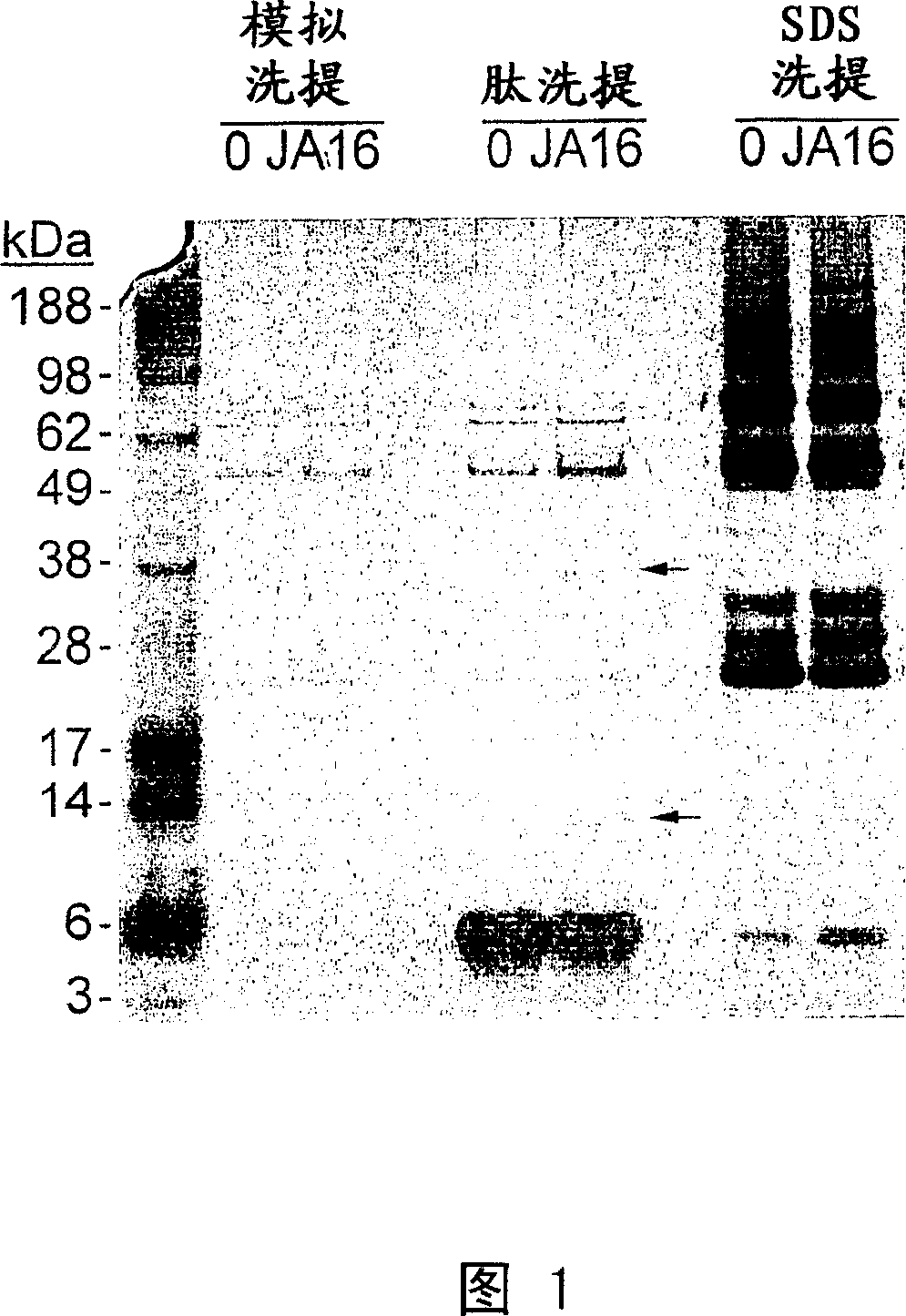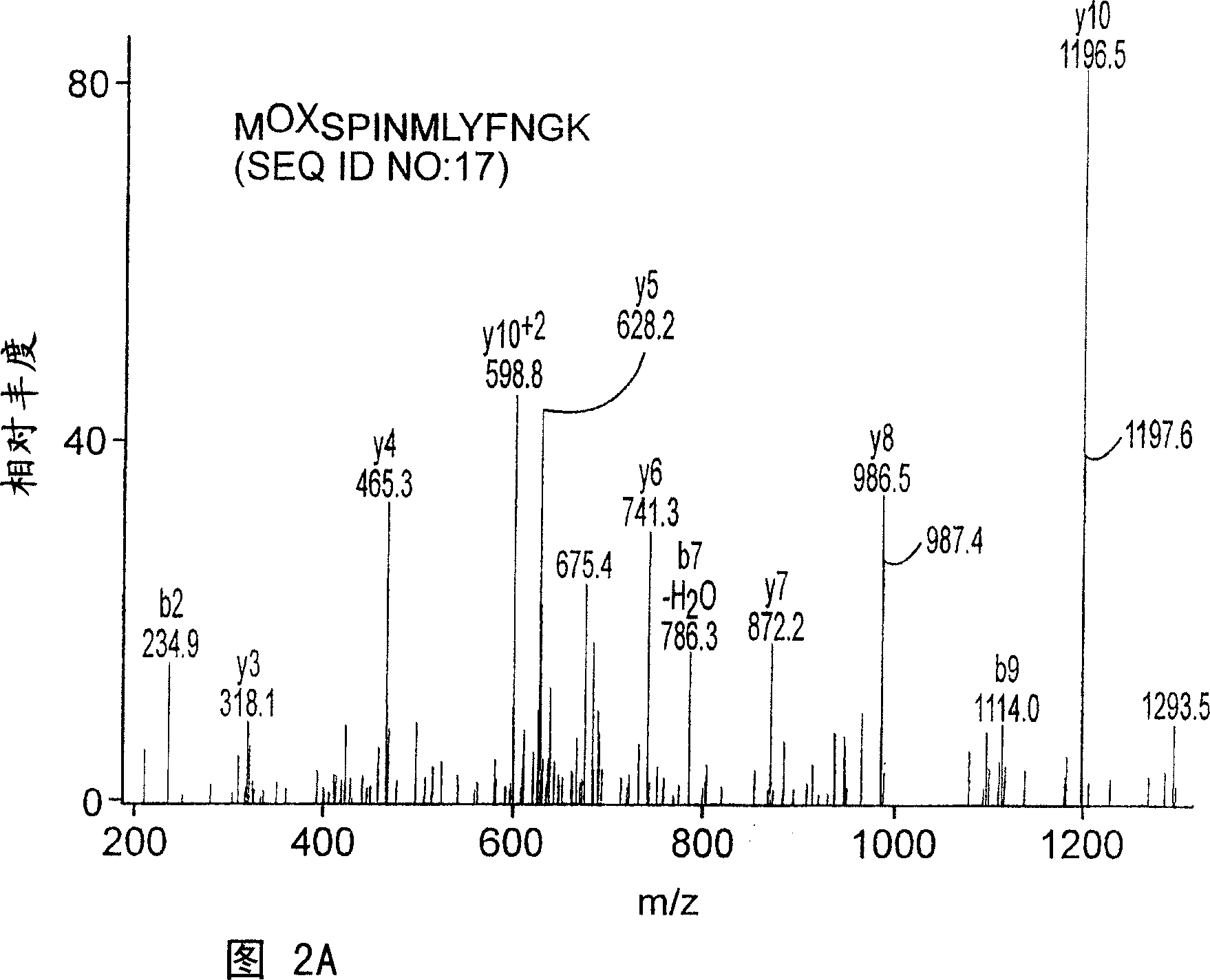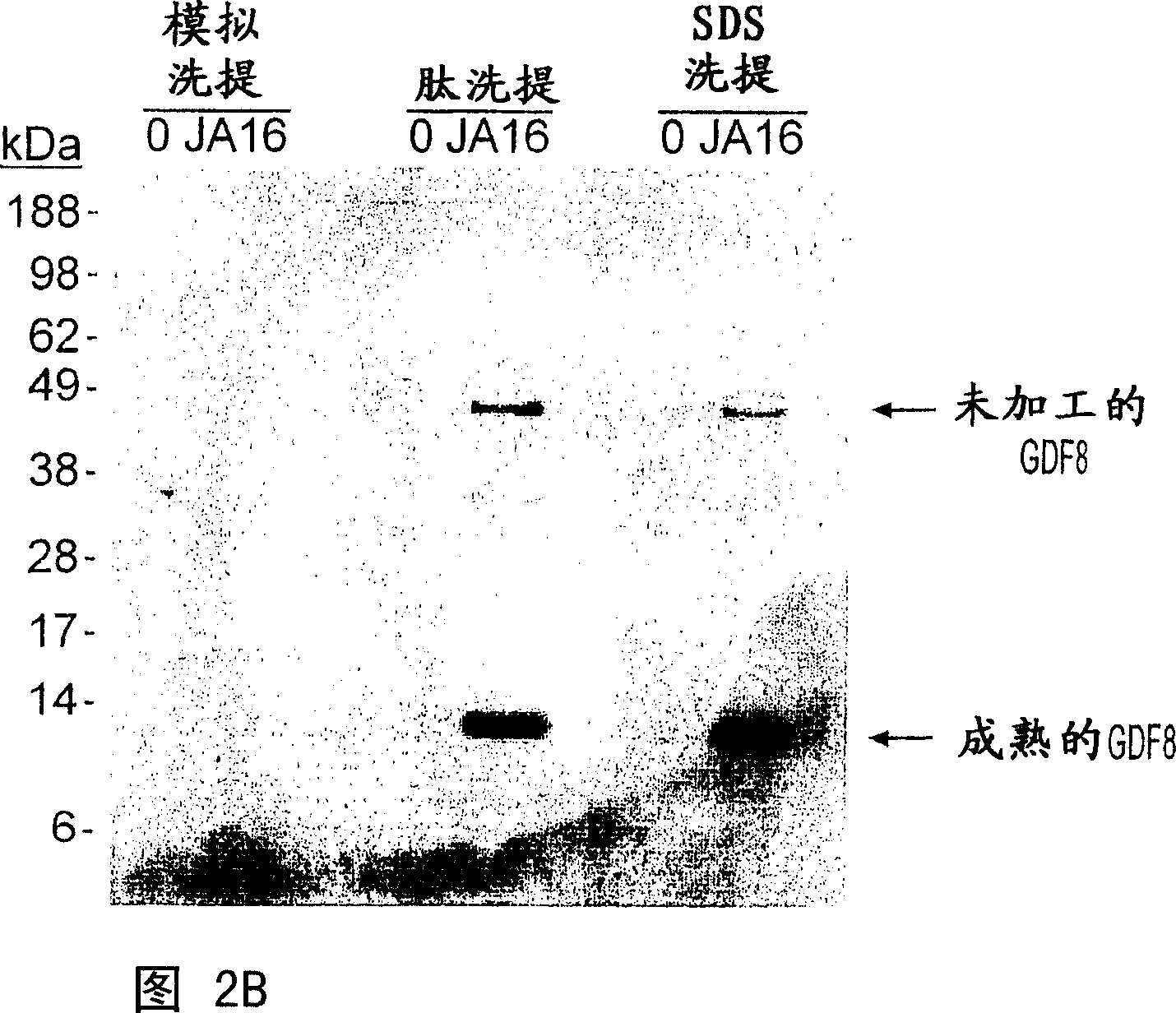Follistatin domain containing proteins
A technology of follicle-stimulating protein and protein, which is applied in the treatment of diseases related to metabolism and regulation, diseases and diseases related to adipose tissue and bone degeneration, and can solve problems such as unknown functions
- Summary
- Abstract
- Description
- Claims
- Application Information
AI Technical Summary
Problems solved by technology
Method used
Image
Examples
Embodiment 1
[0126] Example 1: Purification of JA16-bound beads
[0127] N-hydroxysuccinimide activated beads (4% agarose beads, Sigma H-8635, St Louis MO) in MilliQ-H 2 Washed in O and incubated with anti-GDF-8 JA16 monoclonal antibody (3-4 μg / μl in 100 mM MOPS, pH 7.5) at a ratio of 10 mg JA16 / ml final resin concentration for 4 hours at 4°C. Beads were washed extensively with 100 mM MOPS pH 7.5 and phosphate buffered saline (PBS) (Ausubel et al., (1999) Current Protocols in Molecular Biology, John Wiley and Sons) and stored in PBS at 4°C until use. Control beads were prepared in the same manner but without the JA16 antibody.
Embodiment 2
[0128] Example 2: Affinity purification
[0129] A total of 40 μl of packaged JA16-conjugated beads or control beads were incubated with 15 ml of normal Balb / C mouse serum (Golden West Biologicals, Temecula CA) or 30 ml of collected normal human serum (ICN Biomedical, Aurora OH) at 4°C. Incubate for 3 hours. Beads were washed twice in -10 ml cold 1% Triton X-100 / PBS, twice in -10 ml cold 0.1% Triton X-100 / PBS, and twice in -1 ml cold PBS. Proteins were eluted from the beads in 3 subsequent steps. First, the beads were subjected to a 'mock elution' treatment where 100 μl PBS was added to the beads and incubated at 4°C for 30 minutes. Supernatants were collected and combined with 30 μl 4×LDS sample buffer (Invitrogen, Carlsbad CA). Second, the beads are subjected to 'peptide elution' by adding 1 μg / μl of the competing peptide (sequence:
[0130] DFGLDSDEHSTERSSRYPLTVDFEAFGWD-COOH (SEQ ID NO: 12) was added to the beads and incubated for an additional 30 minutes at 4°C. Super...
Embodiment 3
[0132] Example 3: Mass spectrometry
[0133] Samples were reduced with NuPage 10X Reducing Agent (Invitrogen) for 10 minutes at 80°C and alkylated with 110 μΜ iodoacetamide for 30 minutes at 22°C in the dark. Samples were immediately run on a 10% NuPage Bis-Tris gel according to the manufacturer's recommendation (Invitrogen) in the MES buffer system and silver stained using a glutaraldehyde-free system (Shevchenko et al., (1996) Anal.Chem. , 68: 850-858). Bands were excised and digested with sequencing-grade modified trypsin (Promega, Madison WI) in Abimed DigestPro (Langenfeld, Germany) or ProGest Investigator (Genomics Solutions, Ann Arbor MI). Digested samples were reduced in volume by evaporation and made up to a final volume of -20 μl with 1% acetic acid. Samples (5-10 μl) were loaded onto a 10 cm x 75 μm id C18 reverse phase column packed in Picofrit needles (New Objectives, Woburn MA). MS / MS data were collected using a LCQ Deca or LCQ Deca XP (Finnigan, San Jose CA) ...
PUM
| Property | Measurement | Unit |
|---|---|---|
| affinity | aaaaa | aaaaa |
| molecular weight | aaaaa | aaaaa |
| molecular weight | aaaaa | aaaaa |
Abstract
Description
Claims
Application Information
 Login to View More
Login to View More - R&D
- Intellectual Property
- Life Sciences
- Materials
- Tech Scout
- Unparalleled Data Quality
- Higher Quality Content
- 60% Fewer Hallucinations
Browse by: Latest US Patents, China's latest patents, Technical Efficacy Thesaurus, Application Domain, Technology Topic, Popular Technical Reports.
© 2025 PatSnap. All rights reserved.Legal|Privacy policy|Modern Slavery Act Transparency Statement|Sitemap|About US| Contact US: help@patsnap.com



